Archive for October 26th, 2009
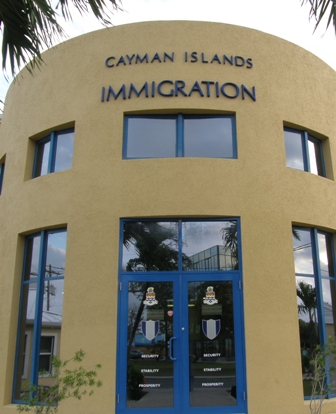
Immigration ignores OCC
 (CNS): In the wake of a particularly serious complaint made to the Immigration Department in February 2008, which the department failed to deal with in a timely manner, the Office of the Complaints Commissioner (OCC) has been monitoring progress at the department. In a special report submitted to the Legislative Assembly last week the OCC found that Immigration is still failing to deal with complaints in a timely fashion, which it says is both unfair and an example of poor administration. However, despite the findings the report was not debated by the members of the House.
(CNS): In the wake of a particularly serious complaint made to the Immigration Department in February 2008, which the department failed to deal with in a timely manner, the Office of the Complaints Commissioner (OCC) has been monitoring progress at the department. In a special report submitted to the Legislative Assembly last week the OCC found that Immigration is still failing to deal with complaints in a timely fashion, which it says is both unfair and an example of poor administration. However, despite the findings the report was not debated by the members of the House.
By no means the first time that a report by the OCC has been tabled in the Legislative Assembly without comment or action, the report is now a public document (available at the LA, the OCC office or on line). As a result, the wider community are able to read and see for themselves the findings of the OCC in regard to the department’s continuingfailure to comply with recommendations when it comes to handling complaints fairly.
The report reveals that, despite a number of recommendations made by the Complaints Commissioner in 2008, the Immigration Department is still failing to address complaints in a reasonable and fair time frame, if at all. The former commissioner, John Epp, had made recommendations in June 2008 that the office establish it own complaints procedure and strive to investigate all complaints within one month and report back to the complainant the results of that investigation within one week.
“In an effort to monitor the Department’s progress in addressing complaints made using their Internal Complaints Procedure (ICP) the OCC tracked the progress made by the department in similar complaints,” the latest OCC report stated. “However, our monitoring efforts clearly demonstrated continued non-compliance with the recommendations made.”
Under the OCC law when a government department fails to comply with the office’s recommendations the OCC should report back to the Legislative Assembly. This latest report was prepared by the OCC in August 2009 and tabled in the House on 22 October by Cline Glidden, the chair of the committee with responsibility for the OCC. Glidden made no comment on the report as it was tabled and no date was set for the standing committee to meet and discuss the contents.
The report also demonstrates how the Immigration Department continues to ignore the OCC. Despite a request from one of the office’s analysts first made in December of 2008 to meet with the Immigration Department and discuss the failure to comply, the OCC said it is still waiting for Immigration to offer a suitable date. The report notes that DCIO Bruce Smith responded on 9 December 2008 to the request saying that he would consult the files and revert with a date for a meeting. “To date the OCC has not received confirmation for a meeting to review the progress made with the department’s ICP…” the OCC report reveals.
The original complaint which was reported to the OCC involved an accusation that the department had revealed private information about the complainant to an outside party, violating the Public Servant’s Code of Conduct. The individual in question had first made their complaint to the Immigration Department but after a month had passed with no action the person approached the OCC.
Following its investigation, which concluded on 19 June, the OCC found that there was an injustice to the complainant and it made a number of recommendations, which the office says have still not been addressed.
A number of subsequent complaints have also taken far longer than a month to address if they had been addressed at all the office said. “A failure to conduct appropriate investigations is unfair and bad administration,” the OCC report stated.

Tickets on sale for Rotary’s annual fundraiser
(CNS): Now in its 14th year the Rotary Central annual Music Extravaganza even will take place at the Royal Palms on Saturday 28 November, 2009 from 7:30pm. Tickets are $25 and are available from Funky Tangs or from Rotary members and re-sellers. Each ticket purchased is also entered into a draw for a $40,000 Grand Prize and many other secondary prizes. This year’s musical line-up includes Gone Country, Sea N Bee, and the Suite Elite. Fiona Moseley, Vice President of Rotary Central, said the proceeds from the event will go towards various community service projects across the Cayman Islands.
“Rotary Central has a long history of serving Cayman’s communities and this event has helped to raise a great deal of money over the years for important local projects,” Moseley added.
Since then the club has established an impressive track record of service in Cayman’s community, which has included assistance with housing, the building of the T.E. McField Centre, the restoration of the Mastic Trail, initiating and developing the Junior Achievement Programme, the Science Fair, Youth and adult Literacy, hurricane relief and a wide range of youth programmes. Rotary Central currently has over 65 members ranging across various sectors of the community. More information is available at www.rotarycentral.ky.
Government starts constitutional education campaign
(CNS): With the Appointed Day fast approaching when the new Cayman Islands Constitution will be implemented, the government is beginning its education campaign. Posted below is the first of four features written by Government Information Services setting out the powers of the governor under the new constitution. These written features compliment a special series of documentaries designed to help Caymanians understand the new constitution which begin this evening on Cayman 27 at 6:30pm.
The series of four documentaries replaces the regular edition of GIS Spotlight and the first programme New Leadership: The Executive and The Legislature’ follows similar lines to the GIS feature as posted in full below:
Part 1: Blueprint for a NewConstitution
(GIS) After extensive consultation, a revised ‘Cayman Islands Constitution Order 2009’ governing document became reality on 10 June 2009. November 6, referred to as the ‘Appointed Day’ will introduce the new Constitution, which outlines the formal structure of government and includes the identification of roles, responsibilities, and accountabilities.
The new Cayman Islands Constitution also addresses relationships between the government, citizens and those elected to power, and it further safeguards citizens by introducing a Bill of Rights.
Acknowledging local involvement in the development of the new Constitution, His Excellency Governor Stuart Jack CVO said, “This process rightfully involved considerable debate, but I will be happy to formally enact the 2009 Constitution of the Cayman Islands on the Appointed Day.”
Under the new Constitution, the Governor’s continued primary role will entail promoting good governance. However, he will now also have responsibility for actively promoting Cayman’s interests, providing they do not conflict with those of the UK.
His responsibilities will also continue to be varied: The main areas are external affairs, defence, and internal security (including the police). He will remain accountable for the overall organisation of the public service.
Relative to his Cabinet role, the new Constitution permits the Governor—acting in consultation with the Premier—to delegate responsibility for any Legislative Assembly business to any Cabinet member. The Governor will also confer with the Premier on selection of the National Security Council, the Constitutional Commission and other constitutional bodies. In most instances the Leader of the Opposition will also give selection input.
The Governor may also delegate responsibility for European Union matters which affect Cayman. In addition, he may assign duties to elected officials concerning the conduct of external affairs relative to Portfolios or Ministries. These may include issues involving the Caribbean Community (CARICOM), the Association of Caribbean States, and the United Nations Economic Commission for Latin America and the Caribbean.
Other areas that the Governor may delegate to elected officials include responsibility for Caribbean affairs, especially tourism-related matters, taxation and financial services.
Under the new Constitution, unless instructed by the UK’s Secretary of State, the Governor cannot engage in any international agreement or treaty that will affect Cayman’s internal policy, or which will require implementation by local legislation, without first obtaining the agreement of Cabinet,.
Approval is also required from the Secretary of State in order to delegate certain duties, including formal negotiations, treaties or other international agreements; political declarations which affect foreign policy; or formal invitations to a member of another government or Head of State to visit Cayman.
The Constitution further states that the Governor must keep Cabinet generally informed on significant developments in matters for which he has responsibility, including those involving economic or financial issues. He must also share responsibilities or delegate these to local representatives. In turn, the Premier must also keep the Governor fully informed of any important activities.
However, the Governor is not obliged to act on the advice of any authority beside the Crown. Neither is it mandatory to consult with the Cabinet relative to any responsibility relating to the Constitution. This includes areas where the Governor is empowered to use discretion, or when based on Her Majesty’s instructions. But if the Governor acts contrary to Cabinet advice on the instruction of the Secretary of State, his reasons will be recorded.
Significantly, the new Constitution allows him (with UK approval) to assign external affairs matters to the Premier, or to another Minister designated by the Premier. In turn, these elected officials must keep the Governor fully informed of any important activities on the part of the Premier or any Minister.
The Governor’s reserved powers allow him to enact legislation in exceptional circumstances. He also holds other special powers, such as permission to grant pardons or reduce sentences. However, such decisions shall involve the new Advisory Committee on the Prerogative of Mercy, which shall meet at the Governor’s discretion.
Finally, the Governor is responsible for using the official public seal of the Cayman Islands, and also is empowered to dispose of Crown property within the Cayman Islands.
In providing for the new office of Deputy Governor, the 2009 Constitution introduces another significant change. The current Chief Secretary post will evolve into that of Deputy Governor.
This post-holder must be Caymanian and must hold (or have held) and still be eligible to hold, a senior government position. Duties shall be delegated by the Governor, and shall include responsibility for the civil service.
Current Chief Secretary the Hon. Donovan Ebanks commented, “In this new role I will still serve as head of the civil service.” He noted that he will continue to act for the Governor as required, or in any other capacity that the Governor decides.
Should the Governor be absent from Cayman or unable to perform necessary functions, duties will be assumed by the Deputy Governor. If the office of Deputy Governor is vacant or if he is off-island or unable to function in the post, another person may be designated as deputy as approved by the UK.
As with most democracies, power is shared among three pillars of government: the Legislative branch (elected Members of the Legislative Assembly); the Executive (the Premier and Ministers); and the Judiciary. Each area is separate and independent, allowing them to monitor and control vested power in the interest of the people.
Importantly under the new Constitution, the Premier will be the highest elected office in local government and he will be able to speak with more authority in local and international arenas.
The Premier will be appointed by the Governor as the elected member of the Legislative Assembly (LA) who leads the ruling political party.
Referring to the honour of this anticipated appointment, current leader of Government Business/Premier Designate the Hon. McKeeva Bush, MBE, said, “It is with due humility that I will take on this position in the service of the people of the Cayman Islands. While this is an historic development in terms of the constitutional advancement of these Islands, it will be a challenging reminder that we will have more influence over our welfare and future.”
Under the Constitution, if there are instances where there is no ruling political party, or if no recommendation for Premier is made by the ruling party, the Speaker can call a vote of LA Members to determine who has majority support. The Governor will appoint that person as Premier.
The Premier will now chair Cabinet in the absence of the Governor. He will advise the Governor regarding the appointment of other Ministers and the Governor will report all such appointments to the UK. In addition, the Premier will consult with or advise the Governor when making appointments to constitutional bodies.
The Premier will be a member of the new National Security Council, and can request meetings ofthis group. He shall also receive regular briefings from the Commissioner of Police on security. Commenting on this new responsibility, Mr. Bush said, “This will mean more transparent and accountable government, for the Governor and I will consult closely on policies that impact public affairs in the Cayman Islands.”
Significantly, after holding this office for two consecutive parliamentary terms, the Premier becomes ineligible to again hold this post until there has been a break of at least one term. He may, however, continue as an MLA or Minister.
The Governor may also revoke the appointment of the Premier if at least two-thirds of MLAs pass a motion of no-confidence. In such case, when the appointment is revoked, all Cabinet Ministers must also vacate their offices. Alternatively, in the case of a no-confidence vote, the Governor may consult the Premier and thereafter dissolve the Legislative Assembly. A general election would follow.
The Premier may also be required to vacate his office if he has been absent from three consecutive meetings of Cabinet, unless the Governor received prior notice.
If due to illness or absence from the Cayman Islands, the Premier is unable to fulfil the functions of that office, the Governor shall authorise the Deputy Premier to perform those functions. In such absences, the Governor shall authorise another Minister in accordance with the advice of the Premier. The Governor may also choose to make this appointment alone, but after consulting Cabinet.
Cabinet is the executive branch responsible for making key government decisions and there are several developments relative to this body. Most notably, five elected Cabinet members remain, but there is provision for the increase of two additional members, a change which can only be effected following the next general elections.
Significantly, the three current official members – the Chief Secretary, Attorney-General and Financial Secretary – will be reduced to two, as the Financial Secretary will instead become the new Finance Minister’s chief financial advisor.
The unelected Attorney General and the Deputy Governor (presently the Chief Secretary) will remain as official members of Cabinet. However, they will no longer have the right to vote.
The Attorney General’s position will encounter other changes. For instance, prosecutions will become the remit of the new Director of Public Prosecutions. This move will enhance the principle of separation of powers, and in turn, fewer conflicts of interest.
The Cabinet Secretary will also become a constitutional post with specific responsibilities. These will continue to include the provision of neutral advice on policy issues to the Governor, the Cabinet and the Premier. The post-holder will also provide administrative support, while coordinating the implementation of government policies.
These new building blocks of democracy include 125 diverse areas. However, the shape, scope and contents of the system of governance in the Islands are largely to be determined and will depend on the application and interpretation of the Constitution by the Crown, elected officials, and the people of the Cayman Islands.
SIDEBAR:
A Tradition of Governance Continues
The United Kingdom has overseen these Islands and all overseas territories, for many years. From 1750 Cayman was managed on behalf of England by in the Governor of Jamaica. Over the years, representatives were known by a range of titles, beginning with Chief Magistrate or Custos, then Commissioner, before progressing to Administrator and finally, Governor.
In 1959 the first Cayman Islands Constitution was introduced, but Cayman chose to remain under England when Jamaica became independent in 1962.
In 1968 Mr. Athelstan C. E. Long, CMG, CBE, was appointed the final Administrator, and oversaw the transition of Cayman into the modern era of Governors. In 1971 he became the first local Governor.
Mr. Duncan Taylor, CBE, has been named as the next Cayman Islands Governor. He is expected to take up his position next January.
The second documentary ‘New Public Service: A Higher Standard of Governance’ will be televised Thursday, 29 October at 7.30 p.m.

DEH issues ‘rubbish’ rules

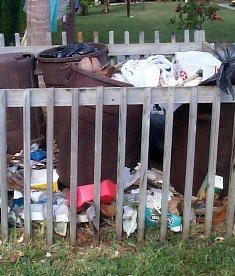 (CNS): Officials from the department of environmental health (DEH) are asking residents to follow proper guidelines when disposing of their garbage to avoid posing health hazards to others—including DEH collectors. From tight fitting garbage or rubbish can lids to avoiding placing sharp objects in regular garbage bags the DEH has issued a long list of guidelines on how to handle household trash. (Photos good garbage-bad garbage)
(CNS): Officials from the department of environmental health (DEH) are asking residents to follow proper guidelines when disposing of their garbage to avoid posing health hazards to others—including DEH collectors. From tight fitting garbage or rubbish can lids to avoiding placing sharp objects in regular garbage bags the DEH has issued a long list of guidelines on how to handle household trash. (Photos good garbage-bad garbage)
“Rounding out Beautification Month, residents can stay green and clean by showing that they are aware of disposal guidelines,” said DEH Director Roydell Carter. ”Having proper containers and enclosures is just one way that residents can assist in reducing the amount of waste that pollutes the environment.”
Residents are asked to adhere to the following guidelines :
Provide watertight metal / plastic containers with tight-fitting lids, to prevent animal interference (both residential and commercial premises);
Avoid placing sharp objects such as metal or branches in regular garbage. These should be securely wrapped in several layers of paper, until the launch of the revamped recycling programme.
Limit maximum weight of a bag / container to 40 lbs;
Avoid placing coals, cooking oil or other ’hot’ items in regular garbage;
Avoid placing construction / demolition materials, vegetation and bulk household waste in residential garbage containers. (Arrange with DEH for rental and removal).
Carter also noted that containers should be placed either in front of premises or on the street immediately beside the property. They should not block traffic and should be promptly removed following collection.
Residents are also reminded that it is illegal (Litter Law, 1997 Revision) to dump garbage on any property or in the vicinity of public roads, beaches, waterfronts, or other public land. The only places to safely dispose of waste are the three landfills.
Unwanted material arising from new construction or renovations must also be transported to a landfill. Illegal disposal can lead to a CI$500 fine or imprisonment of up to six months. When large, approved garbage containers are placed by the DEH for bulk waste disposal, they will be serviced by department staff. However, the public is reminded that access to these rented containers must be kept clear at all times.
Boxes must also be broken down to efficiently utilize container space; wet garbage must be placed in securely fastened plastic bags; and oil, grease or other liquid wastes must not be placed in these containers. Those who prefer to organise their own disposal are further reminded that Cayman’s landfills do have 24-hour drop-off areas. Located at the entrances, drop-off and separation areas are open to the public for disposal of all types of waste. These include landscaping vegetation, construction and demolition debris, metals, household appliances, furniture, and hazardous materials.
For more information regarding garbage disposal and collection and proper garbage enclosures, contact DEH’s solid waste unit at 949-8793 or 949-6696.
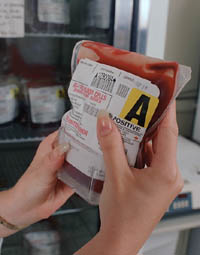
Hospital issues urgent appeal for blood
 (CNS): The Cayman Islands Hospital is making an urgent appeal to people in the community to donate blood. B, A or O negative blood donors are being asked to give blood as soon as they can as the hospital is in urgent need of all three types. Anyone who can help is asked to call the blood bank immediately on 244-2674 or 244-2677 to arrange to make a donation and possibly help save a life.
(CNS): The Cayman Islands Hospital is making an urgent appeal to people in the community to donate blood. B, A or O negative blood donors are being asked to give blood as soon as they can as the hospital is in urgent need of all three types. Anyone who can help is asked to call the blood bank immediately on 244-2674 or 244-2677 to arrange to make a donation and possibly help save a life.
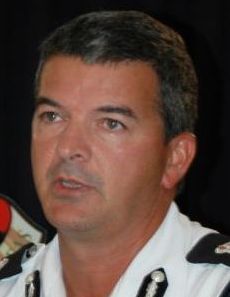
Shootings started over girl
 (CNS): The four fatal shootings which have taken place in Cayman since the arrival of the new police commissioner in June were not only connected but were triggered over a girl, David Baines has said. The spate of execution-like killings between rival gangs, which began with the shooting of Omar Samuels in McField Lane in July, were all connected and were linked to a girlfriend of one gang member who had previously been involved with a member of an opposing gang. He said the death of four men and serious injury to at least one other were tit for tat shootings tied up with perceptions of gang “disrespect.”
(CNS): The four fatal shootings which have taken place in Cayman since the arrival of the new police commissioner in June were not only connected but were triggered over a girl, David Baines has said. The spate of execution-like killings between rival gangs, which began with the shooting of Omar Samuels in McField Lane in July, were all connected and were linked to a girlfriend of one gang member who had previously been involved with a member of an opposing gang. He said the death of four men and serious injury to at least one other were tit for tat shootings tied up with perceptions of gang “disrespect.”
Appearing as a guest on Rooster’s phone in show, Crosstalk, on Monday morning, Baines suggested that the four killings and shootings were a case of “you do one of ours, we’ll do one of yours”. He said that in a different generation it would probably have ended in a fist fight, even a fight involving knives, but now “regrettably they are using firearms”.
He said the tit for tat had started with the Samuels killing and included the fatal shooting of Marcus Ebanks and serious wounding of Adrian Powel, an innocent bystander, then the slaying of Carlo Webster in Next Level, and finally the shooting of Fabian Reid, who Baines said was killed while in a car that police believe the gunmen expected another gang member to be driving.
Baines said the young people involved in the gang rivalries at present are not necessarily defending turf in the terms of drug business as seen in other jurisdictions, but that this had more to do with groups of people who are connected by familial and geographical ties, which he said was indicated by the gang names, defendingwhat they saw as their turf over respect.
Answering questions raised by Sheldon Brown, who is serving a 22 year sentence in HMP Northward for attempted murder who called the show last week, Baines said he agreed that much of the dispute between the gangs was about attitude rather than organised crime. Baines, however, said that the gangs were still involved in serious crime, including drug and firearms importation, and he noted his concerns that the glamorisation of gang culture and perceptions of respect and disrespect played a part in what had become these tit for tat killings.
Speaking about the shooting in West Bay in which Marcus Ebanks was shot and killed and where 14 year old Adrian Powell was wounded and is now paralyzed from the waist down, Baines said the teenager was an innocent bystander. “There is nothing heroic, courageous or glamorous about a fourteen year old boy being targeted and shot by some lout who has nothing better to do and thinks it’s big to shoot someone,” he added. Baines, who said he had recently visited Powell in Miami, said he was not a gang member but was a young boy in the wrong place at the wrong time.
Baines also lamented the problem of witnesses refusing to come forward when these shootings had occurred. The case of the murder of Carlo Webster in the Next Level nightclub, he said, had been articulated very well by MLA for North Side Ezzard Miller, that it was shocking that 150 people think it is acceptable to watch an execution such as that and just walk away.
As a result, he explained that he was working on ways of enabling witnesses to give evidence while remaining anonymous using screens and voice changing technology as well as seeking legislative changes for judge alone trials to prevent jury tampering.
He said people were genuinely afraid of reprisals and feared attacks on their families if they gave evidence — because the community was so small it was easy to intimidate. He said he had heard numerous cases where people and families were truly frightened, where they were threatened with dead cats being nailed to people’s back doors and clear messages delivered threatening their lives. He said people feared that even those in custody would get their family or friends to extract revenge for them.
The commissioner said he was focusing on ways to protect people who came forward. He compared the situation to Northern Ireland, where witness and jury intimidation had led to judge only trials at the request of the prosecution rather than the defendant, as is normally the case. The controversial Diplock trials, as they were known, were used in terrorism related trials firstly between the Irish para-military groups. However, these were then extended in 2005 to Islamic terrorist trials.
Baines said that he was doing all he could to ensure that the information coming into the RCIPS would be secure, but he wanted to go further to ensure convictions in the courts which would mean greater witness protection and the need to eliminate juries in some cases.
Answering questions about his own recent comments that some fifteen people were responsible for the shootings and why they had not been arrested, he explained that in order to arrest anyone it has to be lawful and the idea of rounding people up is not part of a democracy. Clarifying his comments about the so called “15 criminals”, he said the RCIPS had identified around 15 people whom he would describe as the trigger men, the “truly dangerous ones”, who seemed to be prepared to shoot and kill. But he said they had many other associates who werehelping them in the crimes, not least smuggling and moving the guns around.
He said that the police were now actively pursuing the most dangerous individuals and several of them were in custody, but the others were being stopped and searched regularly. Baines explained that in order to arrest anyone officers needed to find evidence of a crime or illegal possession of a weapon. In the meantime, as they moved around, these people would be stopped. Until the recent murder of Reid, he said, the police had done a good job of getting in between the rival gangs and keeping them apart but had failed to prevent this most recent shooting.
“This is a democracy not a police state and we must operate within the law,” the commissioner added.

English in Cayman
This website has brought true freedom of speech to Cayman, since anonymous posters can’t be held to account. Expats can get their feelings off their chests without fear of being deported; native Caymanians can get their feelings off their chests without falling foul of their expat bosses.
Private-sector workers can castigate Civil Servants for their inefficiencies; government workers can hotly deny them. Overseas readers of the website must be astonished to see so much raw resentment between factions in our small-town community – such fierce currents now visible for the first time in history.
Unfortunately, overseas readers must also be shocked to see so many mistakes of written English, especially by persons identifying themselves as Caymanian. I don’t mean the use of phonetic spelling and pretend-patwa words by some contributors as a way of excluding outsiders from the conversation. (We’ve all done that sort of thing in our lives: remember the teenage slang of our schooldays?) Rather, I mean the mis-spellings, the confused punctuation, the bad grammar and the wrong usages that betray a sub-standard education in this most prosperous of Caribbean islands.
The fall in standards is not unique to Cayman and Caymanians, of course, but it should worry us when it’s evident in public forums. Poor grammar is acceptable in the bosom of family and friends, but not in the presence of Cayman’s overseas observers. Like it or not, the world is controlled by people who have mastered their respective national languages. Like it or not, those controllers tend to be irritated by people whose skills in those languages are inferior. They forgive foreigners’ inferior skills, but regard fellow-nationals who display them as ignorant, stupid, or both. That’s unfair, but life is unfair.
For folk who work in manual jobs, ungrammatical speech and writing don’t matter much, at least up to a certain point on the promotions ladder. But for people in office jobs it matters a lot. They will very quickly bump their heads on a glass ceiling – however smart they are otherwise. If you can’t speak or write proper English, your chances of promotion are pretty slim – especially in the professional sector.
There are regular public reports of qualified Caymanians (academically qualified, that is) being turned down for jobs in the fields of law, accountancy, banking and investment. Well, the very first thing those Caymanians should ask themselves is, “Is my English up to scratch?” Sometimes it isn’t. Quite a few contributors to the CNS forums are grammatically challenged, on the evidence of their postings. They seem to be the chief complainers about glass ceilings. I wonder why.
The blame for low standards of English can be laid at many doors, but the responsibility lies with the state’s education strategy. Unfortunately, the strategy is usually biased in favour of children who are clever at passing exams – and that is the case in Cayman. The number of college graduates each year is reckoned to be more important than the level of literacy of everybody else.
Think of this. Some children are so far behind their peers when they enter kindergarten that they never catch up. Some teachers will frankly say that they can tell at age five who the high-school drop-outs and/or criminals will be. What a terrible state of affairs.
There have been many recommendations over the years on how to improve the situation, and some efforts to raise the general standards. There is a mentoring program. The Chamber of Commerce offers week-long courses in basic English. There are private coaches. But those efforts are a drop in the ocean. Maybe what MLAs should do is insist that all child-minders be literate, including domestic helpers in homes with children. Ah, but logic might require them to be given tenure as a reward, and that would never do.
For some years I chaired the Chamber of Commerce’s Education Committee, and one of our aims was to minimise adult illiteracy. But we were told that the government Community College had the matter under control and would we please back off. Ohhh-kay. How has that worked out?
With its small population, Cayman can’t afford to ignore the talents of half its citizens, trapped below glass ceilings for want of a sensible education strategy. The complainers can’t afford to waste time bitching about competition from foreigners. What they should be doing instead is a) urging their MLAs to improve school standards of reading, writing and speech, and b) improving their own. What Cayman needs is not more schools or fancier schools or smaller classes, but a strategic program aimed at achieving a decent level of literacy.
I spent four of my formative years in a school that was a one-room shack without electricity. An inexperienced teacher taught twelve of us in four age-groups. Some older Caymanians can identify with that experience; and most of them probably read, write and speak better than their grandchildren. Those tiny schools’ strategy called for the teaching of proper grammar, proper spelling, proper punctuation, and proper word-meanings. How bad do things have to get before we return to that?

Two men arrested following West Bay Road mugging
 CNS): A women who was robbed by two men on bicycles on Saturday evening as she walked along West Bay Road with a friend at around 9:40pm has got her purse back after police apprehended the suspects. The two men were arrested on suspicion of robbery following the report to the 911 Emergency Communications Centre. Officers had attended the scene and a short time later found and arrested the two men one of which was also arrested on suspicion of carrying an offensive weapon as well as recovering the woman’s purse.
CNS): A women who was robbed by two men on bicycles on Saturday evening as she walked along West Bay Road with a friend at around 9:40pm has got her purse back after police apprehended the suspects. The two men were arrested on suspicion of robbery following the report to the 911 Emergency Communications Centre. Officers had attended the scene and a short time later found and arrested the two men one of which was also arrested on suspicion of carrying an offensive weapon as well as recovering the woman’s purse.
Anyone with information of crime taking place can pass it on to police in a number of ways; people can speak with an officer they know and trust, they can reach George Town detectives on 949-4222, they can leave information on an anonymous voicemail service by calling 949-7777 or they can call Crime Stoppers on 800-8477 (TIPS). All persons calling Crime Stoppers remain anonymous, and are eligible for a reward of up to $1000 should their information lead to an arrest or recovery of property/drugs.

Local efforts aid Philippines after floods
 (CNS): One month after Tropical Storm Ketsana dumped the heaviest rains in more than 40 years on Philippines capital Manila, more than 1.5 million are left struggling to live in flooded suburbs or emergency shelters and the situation remains desperate. Ketsana hit the centre of Luzon island 26 September, flooding Manila and some areas in neighbouring provinces. Tropical Storm Parma hit northern Luzon 3 October, ruining rice crops in the nation’s second-biggest rice-producing region and triggering landslides.An ongoing fundraising effort in the Cayman Islands to help those affected has so far raised over $23,500 to help victims of the devastation.
(CNS): One month after Tropical Storm Ketsana dumped the heaviest rains in more than 40 years on Philippines capital Manila, more than 1.5 million are left struggling to live in flooded suburbs or emergency shelters and the situation remains desperate. Ketsana hit the centre of Luzon island 26 September, flooding Manila and some areas in neighbouring provinces. Tropical Storm Parma hit northern Luzon 3 October, ruining rice crops in the nation’s second-biggest rice-producing region and triggering landslides.An ongoing fundraising effort in the Cayman Islands to help those affected has so far raised over $23,500 to help victims of the devastation.
Although the country was spared a third storm, Lupit, this past weekend, its effects may still cause further landslides, adding to the misery left by Ketsana and Parma, which killed almost 1,000 people. Survivors now face disease and shortages of food and fresh water.
On Saturday, 10th October, every radio station in Grand Cayman held live remotes encouraging people to give to the Red Cross Philippines Disaster Relief Fund. Donation locations included all Foster’s Food Fair stores, Hurley’s Supermarket, Kirk Home Center, Kirk’s Supermarket, and the Tortuga Rum Company in Industrial Park.
“The funds raised here in Cayman will assist in providing shelter for some of the Filipino families left homeless,” said Hemant Balgobin of the Cayman Islands Red Cross. “The Red Cross in the Philippines in conjunction with the International Federation Red Cross aim to support 100,000 of those affected, providing fresh water and food, hygiene supplies and other necessities for these families.”
The island-wide radio-thon, which raised over CI$20,000, was organized by local Cayman businesses to support the Red Cross relief efforts. Companies involved include Cayman Islands Red Cross, CITN, Digicel, DMS Broadcasting (HOT 104, CAYROCK, KISS, and X-107), Foster’s Food Fair, Hurley’s Entertainment (Rooster and Z-99), Kirk Home Center, Kirk Supermarket, Paramount Media (VIBE and SPIN), and the Tortuga Rum Company.
Digicel customers can text short code 4244 or help to donate $1.00. Digicel will match the funds raised through texting. Donations from small and large businesses are also encouraged.
“This has been an amazing group effort which came together very quickly,” said Jeremy Ebanks, general manager, Tortuga Rum Company. “All of Cayman can be proud of the generosity of so many individuals that will help the people of the Philippines. Now we want businesses to join in this cause.”
“dms Broadcasting was proud to be part of this important fundraising effort,” commented dms Broadcasting Market Manager Bryan Hollenbaugh. Adding some entertainment to the mix, dms Broadcasting on-air personalities broadcasted live from each of their respective locations, speaking with passers-by and playing Cayman’s hottest hits for shoppers and listeners alike. Foster’s Food Fair staff was also on hand during the efforts, offering up hot dogs and waters for a $2 donation.
dms Broadcasting’s Network Promotions and Marketing Manager Phil Vinciullo, “The Filipino population is one of Cayman’s largest expatriate communities, and upon hearing about the effects Typhoon Ketsana had on their friends and families back home, dms Broadcasting was determined to help. We hope to join together again for efforts like this one so remember to keep your dials tuned to your favourite dms Broadcasting station to find out how you can get involved!”
On Cayman Brac, the Backyard Caboose Theatre Company and the Brac Filipino community hosted a successful variety show and food sale on Friday, Oct 16th 2009 at the Aston Rutty Civic Centre, raising over three thousand dollars. The total money raised from both food sales and the show is CI$3,507, which will be sent to ABS CBN Foundation Incorporation.
Want to help?
Find a Red Cross collection drop box or deposit cash and checks, payable to the Red Cross, into Bank of Butterfield: Red Cross Philippines Relief Fund # 02201035054. For more information, contact the Cayman Islands Red Cross at 949-6785 ext. 27.
Or ABS CBN Foundation Incorporation account # 563-0020111 Banco de Oro, Mother Ignacia Branch, Swift Code, BNORPHM ABS CBN BDO Branch.
About CNS Christmas Appeal: CNS will be featuring a number of charities with local connections in the run up to Christmas. If you would like to promote your charity this season, please email Christmas@caymannewsservice.com
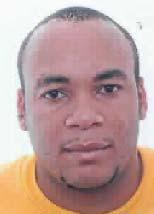
Firearms suspect escapes cops
 (CNS): Police have issued a wanted alert for 28-year-old Dainian Cecil Henry, who escaped from George Town Police Station yesterday, 25 October, at around 5:15 in the evening. Henry is reported to have made his escape by knocking aside a woman coming into the station who was carrying a baby. He made off down Elgin Avenue in the direction of the Immigration Department and officers immediately made chase but did not find him. Police said Henry was arrested over firearms related offences. Henry is of medium to dark complexion; approximately 5’ 9’’, heavy set at about 170lbs, low cut hair, and was last seen wearing a green t-shirt with yellow stripes and khaki shorts.
(CNS): Police have issued a wanted alert for 28-year-old Dainian Cecil Henry, who escaped from George Town Police Station yesterday, 25 October, at around 5:15 in the evening. Henry is reported to have made his escape by knocking aside a woman coming into the station who was carrying a baby. He made off down Elgin Avenue in the direction of the Immigration Department and officers immediately made chase but did not find him. Police said Henry was arrested over firearms related offences. Henry is of medium to dark complexion; approximately 5’ 9’’, heavy set at about 170lbs, low cut hair, and was last seen wearing a green t-shirt with yellow stripes and khaki shorts.
Henry had been in custody for firearm related matters and the public is advised to report any sightings of this individual immediately and are strongly advised to not approach him directly.
Anyone with information of crime taking place can pass it on to police in a number of ways; people can speak with an officer they know and trust, they can reach George Town detectives on 949-4222, they can leave information on an anonymous voicemail service by calling 949-7777 or they can call Crime Stoppers on 800-8477 (TIPS). All persons calling Crime Stoppers remain anonymous, and are eligible for a reward of up to $1000, should their information lead to an arrest or recovery of property/drugs.